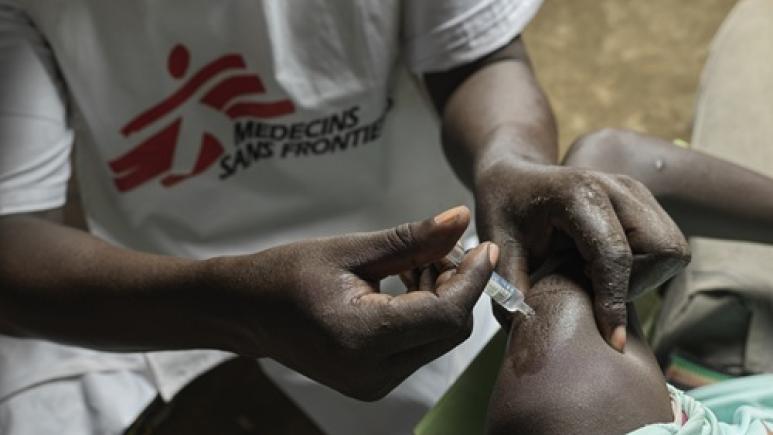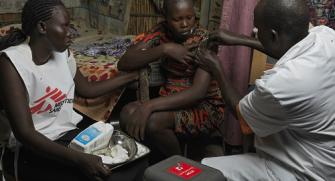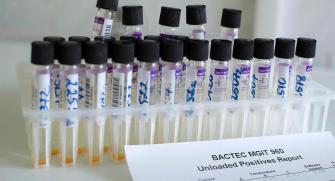Hepatitis E Vaccine: Efficacy of a two-dose regimen and safety for pregnant women confirmed by real-life study
Once clinical trials are completed, a vaccine enters another essential phase: its evaluation under real-world conditions. Real-life studies provide insights into how a vaccine performs without the strict exclusion criteria or perfect follow-up inherent to controlled settings. These studies provide a better understanding of vaccine performance in less controlled settings, without strict exclusion criteria or intensive follow-up of participants. As far as pregnant women are concerned, data were previously extremely limited, based mainly on a few cases of women inadvertently vaccinated in randomized controlled trials. However, the World Health Orgnaization (WHO) recommends vaccinating pregnant women in high-risk situations because of their particular vulnerability. Furthermore, in humanitarian contexts, the implementation of vaccine regimens is often complicated by logistical constraints, notably the number of doses required and the time between doses.
"These challenges make evaluation in real-life conditions essential if we are to adapt vaccine strategies to the populations most at risk," explains Iza Ciglenecki, Operational Research Coordinator at MSF Switzerland.
First assessment in an epidemic situation
In 2022, Médecins Sans Frontières (MSF) and Epicentre seized the opportunity of the first mass vaccination campaign during the hepatitis E epidemic in Bentiu camp, South Sudan, to collect real-life data on the safety and effectiveness of the Hecolin© (HEV239) vaccine. The data were then analyzed in collaboration with Geneva University Hospitals.
This campaign, carried out at the request of and in collaboration with the South Sudanese Ministry of Health, followed the manufacturer's recommended vaccination schedule: a first dose, followed by a second one month later, and a third at six months. At the end of the third vaccination round, interviews were conducted with a representative sample of 1,599 eligible individuals. The results showed that 86% of the eligible population had received at least one dose, 73% at least two doses, and 58% all three doses.
This decrease in the number of doses does not reflect a lack of adherence on the part of the population, but is mainly explained by the unavailability of people during the campaigns, due to high mobility within the Internally displaced person (IDP) camps. This underlines the logistical challenge of implementing a three-dose regimen, particularly when the third dose must be administered six months after the first.
Against this backdrop, the study assessed the effectiveness of a two-dose vaccination schedule.
“Our results show moderate to high effectiveness in preventing hepatitis E with only the first two doses," explains study leader Andrew Azman from Geneva University Hospitals the Johns Hopkins Bloomberg School of Public Health.
This is a significant finding for epidemic settings where logistical constraints make it difficult to adhere to the three-dose regimen. This result, published in the journal The Lancet Infectious Diseases in January 2025, paves the way for the use of a two-dose regimen, better suited to emergency situations where health infrastructures are limited."
Protecting pregnant women: A priority
Among the groups most vulnerable to hepatitis E are pregnant women, with mortality rates that can exceed 30% during epidemics, and an increased risk of spontaneous abortion and stillbirths.
To document the safety of this vaccine for pregnant women, Epicentre conducted a study on over 3,000 pregnant women, both vaccinated and unvaccinated, living in the Bentiu camp. The main aim of the study was to ascertain whether vaccination increased the risk of fetal loss.
"We matched vaccinated and unvaccinated participants with similar profiles (according to criteria such as age and gestational age), which enabled us to estimate the risk of fetal loss in vaccinated versus unvaccinated women," explains Étienne Gignoux, study leader and Director of Epicentre's Intervention Epidemiology and Training Department.
When comparing the groups, the researchers found no significant increase in the risk of fetal loss linked to vaccination.
"These results (published in The Lancet Global Health in November 2024) are really reassuring, providing evidence on safety on large number of vaccinated pregnant women," emphasizes Iza Ciglenecki.
Prior to conducting this study, the only information available came from a small number of women inadvertently vaccinated during trials in China.
Towards changes in public health policy
These results have contributed to the recent recommendations of WHO's Strategic Advisory Group of Experts (SAGE). In March 2024, the SAGE recommended priority vaccination of women of childbearing age in regions where hepatitis E is endemic (1). The group also validated the option of a two-dose vaccine schedule (at 0 and 1 month) as an acceptable alternative to the three-dose schedule, particularly in fragile or conflict-affected areas. In addition, the International Coordinating Group on Vaccine Provision (ICG) approved the establishment of the first global stockpile of hepatitis E vaccine.
"This study paves the way for a wider and safer use of the vaccine in future vaccination campaigns, particularly in humanitarian crisis contexts where hepatitis E is rife." notes Iza Ciglenecki.
While the current findings bolster confidence in the Hecolin© vaccine, they do not bring the necessary research to a close. "We still need to continue our work to explore the potential of a single-dose regimen, as well as its safety in children under 16, who accounted for the majority of cases of contamination in Bentiu," concludes Étienne Gignoux
By combining safety and efficacy, the Hecolin© vaccine could become a key tool for protecting the most vulnerable populations, while offering solutions adapted to the challenges of epidemic contexts.
(1) https://www.who.int/publications/i/item/WER-9922-285-306
©Peter Caton











